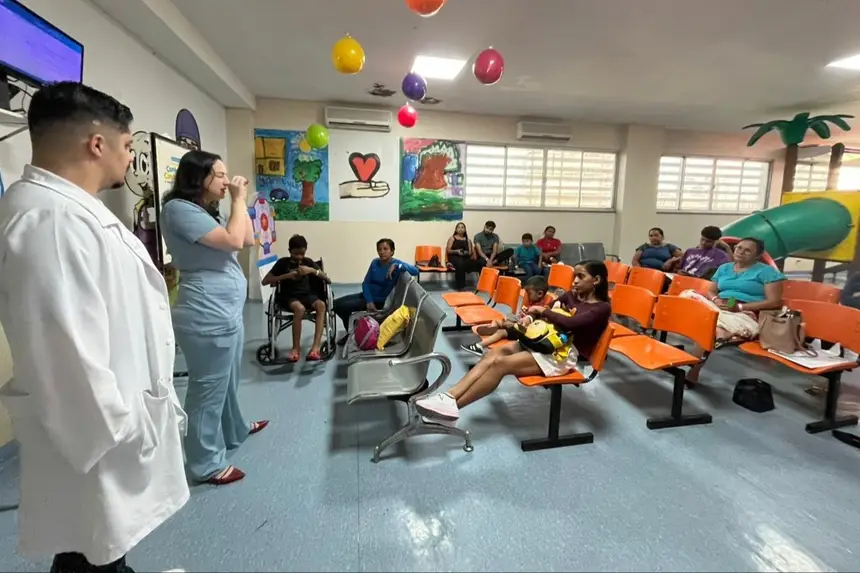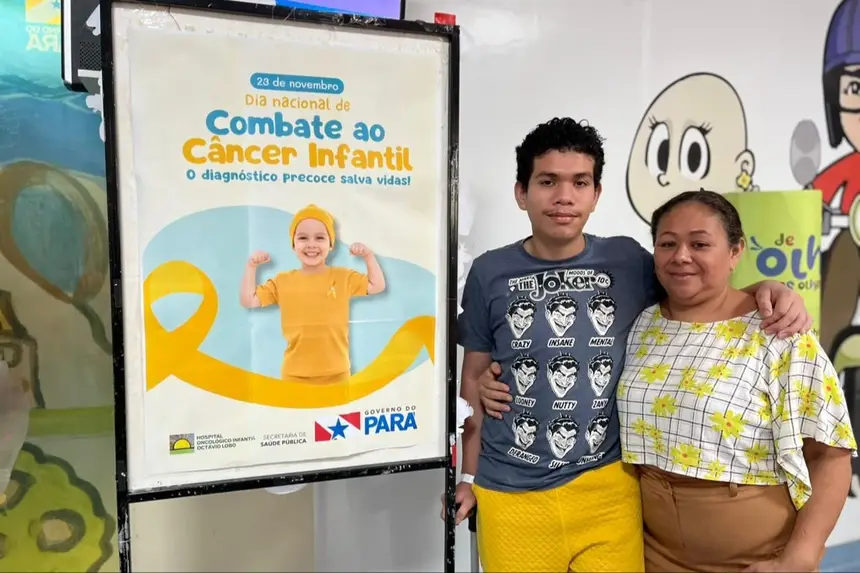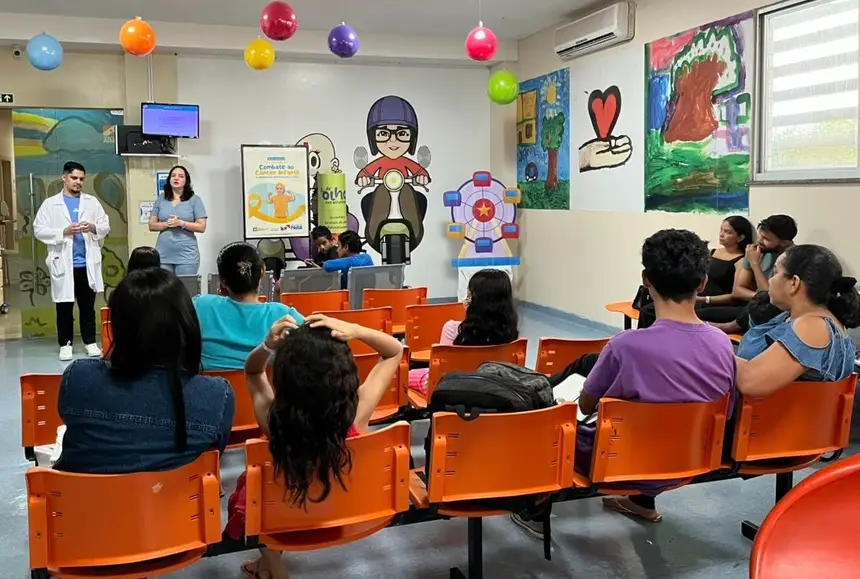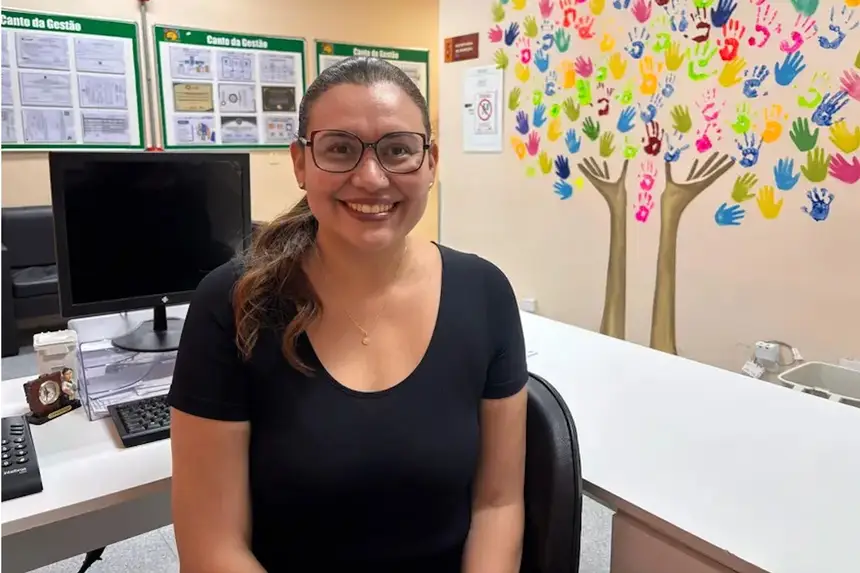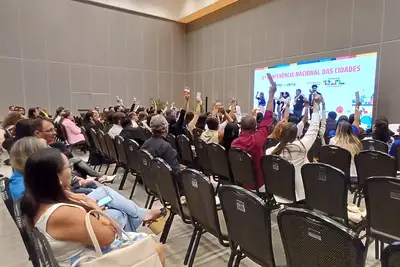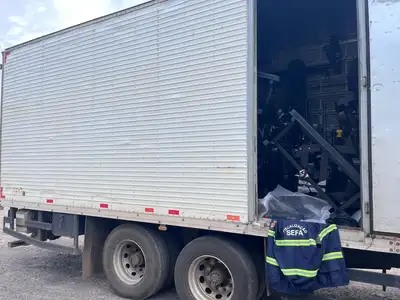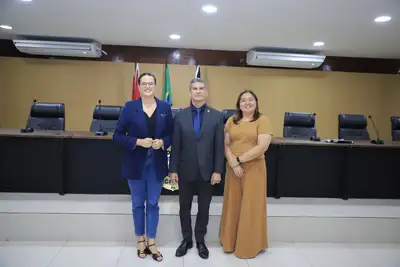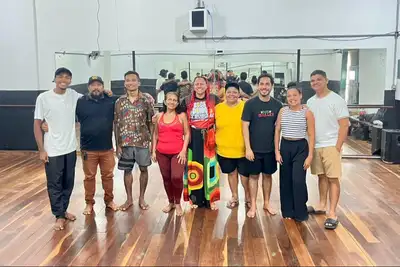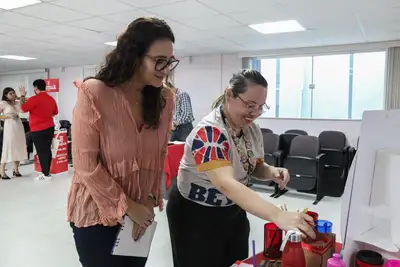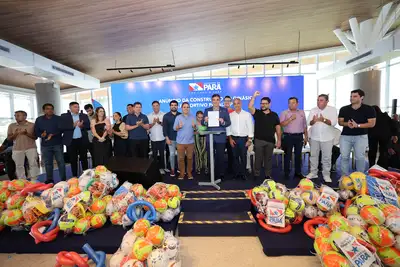National Day for the Fight Against Childhood Cancer Reinforces Early Detection
At the Octávio Lobo Hospital, oncologists provide guidance on signs and symptoms in children and adolescents that deserve the attention of parents and guardians
The National Day for the Fight Against Childhood Cancer, celebrated this Sunday (23), reinforces the need to raise awareness about the signs and symptoms of the disease and strengthen care networks aimed at children and adolescents throughout Brazil. In Pará, the Octávio Lobo Children's Oncology Hospital (Hoiol), the main reference in the Amazon region, highlights the importance of early diagnosis and specialized care in the fight against cancer.
According to the National Cancer Institute (Inca), childhood cancer is the leading cause of disease-related death in the age group between 1 and 19 years in Brazil. Although rare, as it accounts for about 3% of total cases, pediatric cancer can present more aggressively, with rapid progression to metastasis. Thus, early detection of the disease considerably increases the chances of cure, around 80%.
According to Inca, 7,930 new cases of pediatric cancer are estimated per year for the 2023-2025 triennium. The pediatric oncologist at Hoiol, Cylia Serique, emphasizes that the sooner a child arrives at the specialized service, the better the response to treatment. "Early diagnosis allows the child to start treatment with the disease more controlled and in better overall condition. This significantly increases the chance of cure and improves the response to therapeutic interventions," the doctor emphasized.
The specialist, who has been working at Hoiol since 2018, highlights signs that cannot be ignored by parents and guardians. "Progressive pallor, unexplained weight loss, bruises, abdominal swelling, lymphadenopathy (abnormal enlargement of lymph nodes, the famous 'lumps'), altered eye reflex in photos, and regression in developmental milestones are some indicators," said Cylia.
The most common types of cancer in childhood include leukemias, central nervous system tumors, and lymphomas. Among patients aged 0 to 19 years, the audience served by the Octávio Lobo Children's Oncology Hospital, sarcomas, which affect connective tissues such as muscles and bones, are also prominent.
At Hoiol, care for children and adolescents is provided by a specialized multidisciplinary team that accompanies the user from the beginning of their journey. The comprehensive care model ensures a humanized service that welcomes patients from various municipalities.
"Pediatric oncology is not done by a single professional. It is a set of knowledge. Nutritionists, psychologists, humanization teams, social services, palliative care, pediatrics, oncology, among others, work together to provide complete care for children and families," the doctor emphasized.
Recognized by the Ministry of Health (MS) as a High Complexity Oncology Unit (Unacon), Hoiol is part of the Oncology Care Network of Pará and offers comprehensive care to users of the Unified Health System (SUS), from diagnosis to specialized multidisciplinary treatment. The hospital's management is carried out by the Institute Diretrizes (ID), through a contract with the State Department of Public Health (Sespa).
Pediatric oncologist Alayde Vieira, the technical director of the unit, explains that the unit operates in four major areas: diagnosis, treatment, comprehensive support, and teaching and research. "We are a reference for children and adolescents aged 0 to 19 from all over Pará and neighboring states. The hospital offers imaging exams, laboratory, pathology, and all necessary support to confirm the diagnosis quickly and safely. In addition to treatment and the work of a specialized multidisciplinary team, we participate in several projects of Proadi-SUS (Support Program for the Institutional Development of the Unified Health System) and the Aliança Amarte with the aim of maintaining education and qualification within the unit," she stated.
Awareness - Last Wednesday (19), doctors Bruno Cerqueira and Cylia Serique mediated a conversation circle with users and companions in the institution's outpatient clinic. The meeting promoted the sharing of experiences and clarified doubts about signs, symptoms, diagnosis, and the entire journey of pediatric cancer treatment. Beyond the conversation circles, Alayde reports that the hospital develops various humanization actions to make oncological treatment lighter and more welcoming for patients and families.
"There are initiatives that explain the diagnosis, procedures, and treatment through play, helping the child understand what is happening and reducing fears and anxieties. We also carry out art, leisure, and well-being projects, as well as welcoming actions and special programs on commemorative dates with music, playful activities, and toy distribution. The hospital also has a hospital classroom that, in partnership with the State Department of Education (Seduc), ensures that children and adolescents can continue their studies during treatment, which is essential for development, socialization, and emotional support," the technical director stated.
Among the stories that pass through the halls of Hoiol is that of Alessandro Pontes, 17 years old. He was diagnosed with osteosarcoma, a malignant bone tumor, and has been treated at the unit for five years. The teenager's mother, Maria Santos, 46 years old, recalls the first signs. "He started to feel pain in his left leg. Initially, it felt like cramps, mild and sporadic, but they increased over time. We noticed swelling in his left leg, below the knee. Since he said he hadn't hit it, I scheduled an appointment, and the doctor requested imaging tests, which showed the alteration. When I found out it was cancer, I was very scared because I didn't even know cancer could affect bones," she said.
The support from the hospital team has been essential in the journey against the disease. "I never imagined my son's problem was cancer. Many times, we underestimate the symptoms, but it is essential to act quickly and have the support of family and the doctor as well. Here (at Hoiol) we have always been well treated, always, even today. Whether for an appointment or when he needed to be hospitalized, we were always well received, from the reception, the cleaning staff, to the medical team. I have nothing to complain about," Maria concluded.
Text by Ellyson Ramos / Ascom Hoiol



